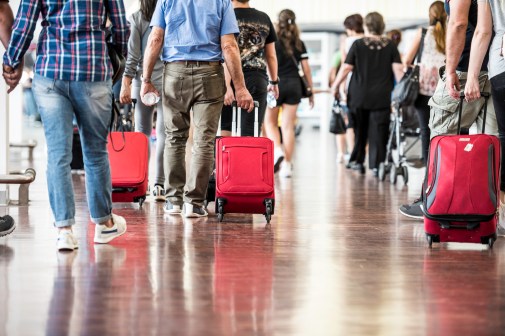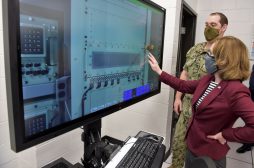Data mining uncovers some risky military spending habits
The Pentagon has a credit card problem, and it has nothing to do with spending too much on the latest military technology.
To the contrary, a new Defense Department inspector general report uncovered widespread abuse of government-issued credit cards by uniformed and civilian employees of the Pentagon. Although the cards are issued strictly for official government travel, an IG data mining investigation of a year of transactions uncovered 4,437 personal transactions at casinos totaling more than $952,000 and another 900 transactions at adult entertainment establishments totaling more than $96,000.
The IG used Visa IntelliLink Compliance Management, Citibank Electronic Access System and the Defense Travel System to mine data related to unauthorized personal transactions between July 1, 2013, and June 30, 2014. But the Pentagon had little real-time visibility into the transactions and was unable to prevent them, including transactions with known “high risk merchants.”
The Pentagon has issued more than 1.6 million government travel cards. During the time of the IG’s investigation, more than 20 million transactions were billed to those cards totaling more than $3.4 billion.
But the technologies and policies necessary to detect unauthorized personal use of government-issued credit cards are not in place, according to the IG. For example, the Pentagon was unable to detect transactions by individuals who were not in an official travel status. Likewise, the existing financial management and travel system was unable to detect ATM withdrawals outside of the authorized official travel area and could not notify officials of repeated declined ATM cash withdrawals.

(DOD IG report)
Agency program coordinators “either did not identify improper personal use by reviewing the merchant names or could not determine the type of establishments by reviewing the merchant names. Also, the [Defense Travel Management Office] Travel Policy Compliance Tool did not data mine for casino or adult entertainment establishments’ merchant names to identify personal use,” the IG report concluded.
Also, even though the Defense Department has made an attempt to block certain merchant category, or MCC, codes from use, the code-blocking method was not effective because transactions were often conducted at restaurants and on-premises ATMs. “Many adult entertainment establishments can circumvent the blocked MCC by using a MCC related to ATMs, bars, or restaurants to disguise the true nature of the business. In addition, casinos and adult entertainment establishments may appear on GTCC billing statements under a variety of names,” the report says.
An MCC is a four-digit number assigned to a business by MasterCard or Visa when the business first starts accepting one of these cards as a form of payment. The MCC is used to classify a business by the type of goods or services provided. The department blocks some MCCs to prevent inappropriate card use, but it cannot block all of them because some casino establishments, for example, are used for official travel.
The IG recommended that the Pentagon revise its policy to clearly put adult entertainment establishments off-limits. Some agency program coordinators said they have been hesitant to discipline employees when the official policy does not clearly state what types of merchants are prohibited for government credit card use.
The IG also recommended that agency program officials obtain a regular monthly report of declined transactions, which are considered a good indicator of personal use. Citibank Custom Reporting System contains a declined authorizations report that all agencies could generate for senior officials, and they should be required to do so, the IG report states.
In a written response to the IG report, Harvey Johnson, director of the Defense Travel Management Office, said the number of misuse cases cited by the IG report were only a tiny fraction of the program and have not resulted in any loss to taxpayers. “The report language applies a very broad stroke against all cardholders when, in reality, personal use of the Government Travel Charge Card is negligible,” wrote Johnson.






